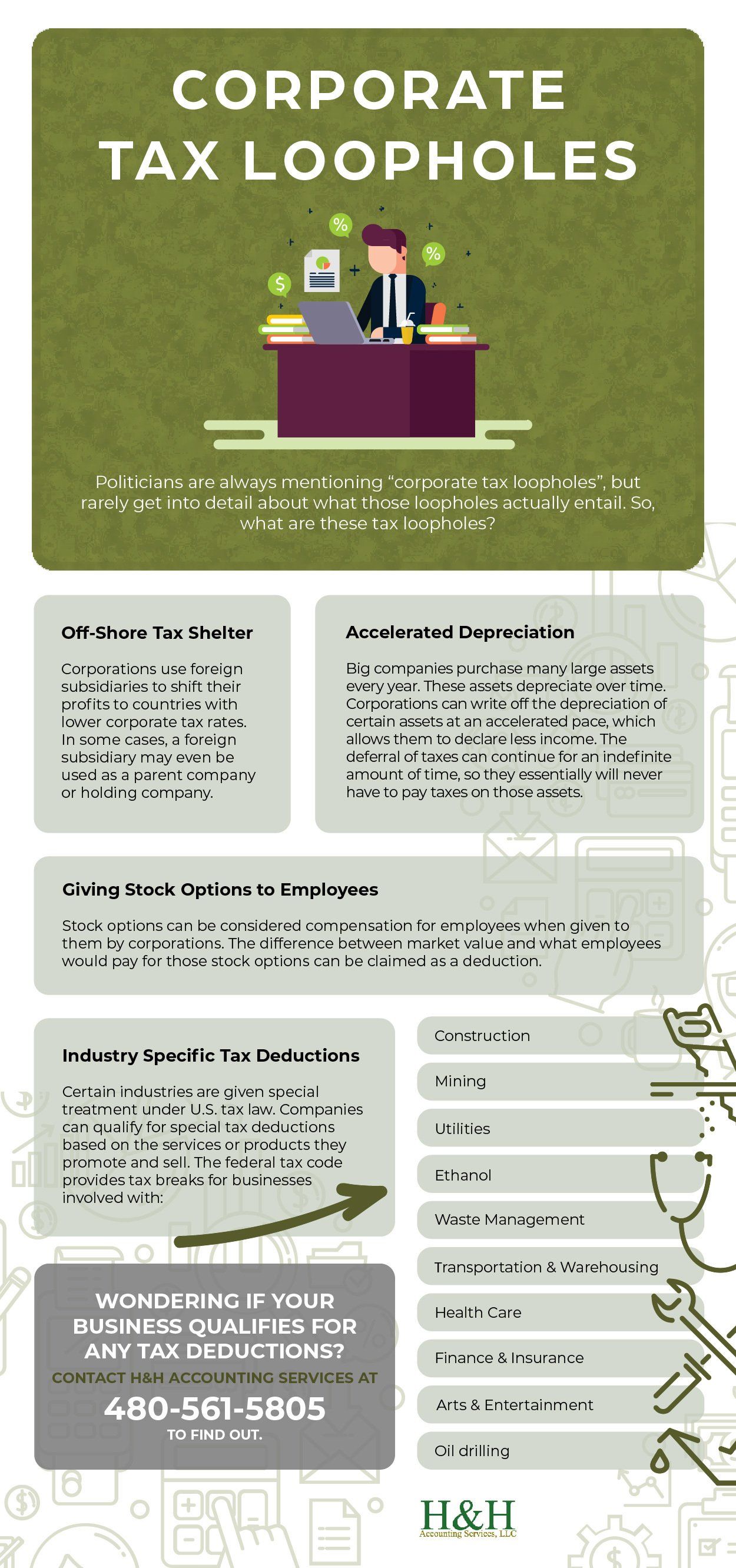Why Do Corporations Get More Tax Cuts Than I Do?

There’s a relatively simple reason corporations seem to receive generous tax cuts and loopholes – economic development is good for states and the country as a whole. States want big companies to open headquarters and regional offices in their cities because those offices employ hundreds or thousands of local residents. Those workers buy homes and spend their money at other local businesses, which has a cascading positive effect in the local economy.
A business’s revenue may also be taxable and bring in more funds. In some cases, companies also foot the bill for infrastructure improvements. For example, consider Internet Service Providers. They’ve recently changed their tune on whether or not they should be considered a utility, but for the most part they have funded expansion of broadband infrastructure over the past couple decades, which has been good for states.
If a state can get a private company to pay for laying fiber optics all around town, it may be worth giving them a tax break for the trouble.
Corporations operate on a larger scale than sole proprietorships or partnerships. Business tax credits, which aren’t all that different from personal tax credits, are given for various activities the government wants to encourage and incentivize. Even small businesses and people who are self-employed can benefit from special business tax credits, but they aren’t as robust as those available to large corporations.
What Kind of Taxes Do Companies Pay?
Like most people, corporations pay two forms of taxes: federal taxes to the United States government and taxes to the state. Local state taxes usually take a few forms: corporate income tax, sales tax they collect from their customers and business franchise tax. Income tax is essentially the same as personal income tax – it’s a tax on eligible revenue. Franchise taxes generally aren’t based on income but are instead more akin to fees based on the size of their business. In some states a business may have to pay franchise taxes based on their net worth or their gross receipts for the year, but in many cases they’re just flat fees.
What Are Tax Credits?
Tax credits are not deductions. They work similarly, but instead of being subtracted from revenue they allow a company to subtract all or part of specific business expenses from their income tax bill. The amount that they are able to deduct is limited on a yearly basis.
How a tax credit is calculated is based on the credit. For example, the Work Opportunity Tax Credit (WOTC) is specifically intended to incentivize the hiring of ex-offenders, welfare recipients, low-income or disabled veterans, and other people who might be difficult to employ. If a business needs low-skill and low-wage workers, they can potentially knock between $1,000 and $5,000 per eligible worker off their tax bill each year through the WOTC.
How Tax Credits Work
Some of the criteria for tax credit programs include the company's industry, the amount of money they invest, their location, the number of hires they had for the year and what wages they pay them.
Corporations lobby for the creation of tax credit programs to benefit their operations, but they are created by laws passed by federal and state legislatures. Tax credits cannot be negotiated on a per business basis, they must be codified into law, which is why they are considered entitlement subsidies.
Tax Deductions Vs Tax Credits
Deductions are subtracted from a company's profit before the amount of tax is calculated, ultimately decreasing the amount of taxes owed. Tax credits are deducted from the amount of taxes owed.
Deductions are made, and then tax credits must be claimed. Every state is different and has different state tax credits available to business owners. You should always discuss eligibility for tax credits with a tax expert like those at H&H Accounting Services.
Companies must claim tax credits when they file their tax return. They will usually be required to submit documentation to prove they are eligible to receive the tax credits they are claiming. Some companies are audited to confirm their yearly tax credit, which is why it is important for businesses to always have an accountant and tax expert work with them to make sure they are in compliance with state and federal law.
Need Help With Business Tax Credits or Tax Deductions?
Aren’t sure which tax credits or tax deductions your business might be eligible to receive? Contact the business consultants and tax experts at H&H Accounting Services. We can help you determine which business tax credits and deductions your business can qualify for and help you avoid potentially invasive audits. We can also help businesses that may be facing audits or questions about their past tax filings.
Call us at 480-561-5805 to request a free one-hour consultation. We’re happy to go out to your place of business to get the discussion started.




